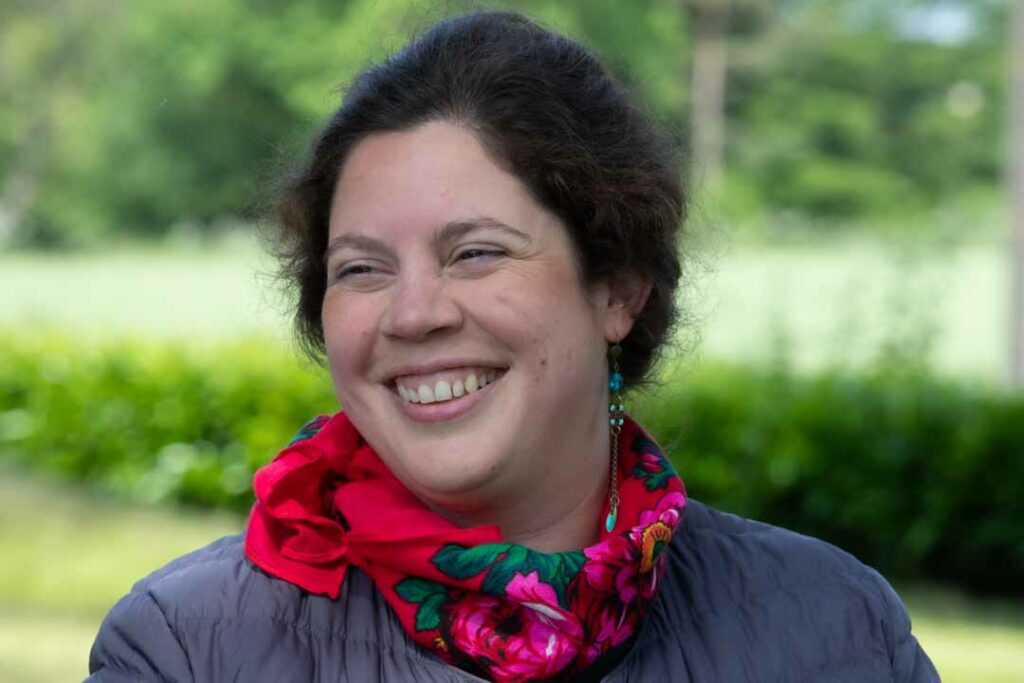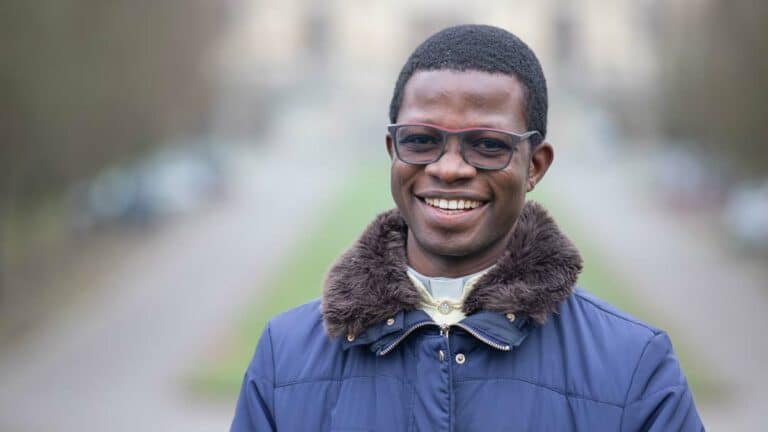‘How are your parents?’ was the question Amelie would hear at the death of her brother Dominique in a car accident. Are you not allowed to be sad and suffer when you loose your brother? Eight years after the tragedy, Amelie shared with us how she went through the mourning of her brother, the shock at the news, the impact on her family and her relationship to God…
The shocking news
Christmas 2015. Amélie was staying at her grand-mother when she heard the news through the social media, then from her mum, that her youngest brother was dead. The shock was crushing. “I was filled with incomprehension, restless. I felt like escaping. There was something unbearable in the news of his death.”
The first thing Amelie did was to let her friends know. “I had to tell people about it. I needed others, I needed their support, their presence around me, because I knew they would pray for us. I needed their communion. That was already a kind of consolation, even if I was alone in my room.”
A few days later, Dominique’s body was laid to rest in the mortuary, close to the family home. Although some relatives didn’t feel the need to see him, many went there to spend some time near him. “Some family members came, and also some of his friends. They told jokes and shared some memories of their experiences together. This mortuary was a place for living. Which makes me think that a number of people do not complete their mourning because they are not lucky enough to go and see the body of the person they love.”
The first stages of the mourning
After the shock, Amelie went through a time of denial, doing as if “Dominique was still around”. It was extremely hard. The pain of his absence was constant during the first few years. Then it transformed into a series of periods feeling down and unable to do anything.
Mourning takes time and, as Amelie points out, “our society finds it hard to understand this. Indeed, people do not realize that time is experienced differently by those in mourning. By the time you hear the news and at the funeral, you get a lot of support. Then, after it was over, people told me to turn the page.”
Sometimes, people dismiss you very strongly, especially when you are young and supposed to be in the planning phase for building your life. You are not allowed to be vulnerable. So I mean mourning is not a matter of weeks or days, it is a matter of years. Some people will even take decades if they have no close supports or the right place to express how they feel.”
How are your parents?
Losing a brother or a sister is a real bereavement. However, as Amelie points out, “many people ask: ‘How are your parents?’ They don”t ask about how you are feeling. As if your suffering was a lower grade. Of course the parents are in great pain but so are the children. And one thing you shouldn’t compare is suffering.
When you loose a father, a brother or a sister, you mourn for the tie you had with that family member. The mourning is unique.” When a family looses a member, it sorts of hobbles, and finding its balance may take years.
Sharing the suffering for the mourning with the family
In some families, the parents ignore the suffering of their children or may find it hard to recognize it. Luckily, Amelie does not live with the rest of her family. She admits however that “when everybody is suffering, you may be concerned about potentially adding pain to that of other members. As a result, you hush up and don’t tell them how crushed you are inside. Which means that you need proper places to express your suffering. Not within the family but outside rather. You need to find opportunities to voice your pain. The hardest thing is loneliness, something may go unnoticed by others but always there deep within.”
So, according to Amélie, getting support from someone outside the family and neutral is essential. Whilst priests and nuns or monks can address questions on the spiritual level, they are not always trained to deal with the psychological side. “You need to dare reach out to professional counselling by people who are qualified to hear those things.”
Relating to a departed brother
“At this present day, I would say my relationship with him is peaceful. From time to time I speak out a few words to him. However, about a year ago, I made a prayer to him. You may find that surprising but it was the outcome of a very long journey. I said to him: “Listen, Dominique, you may go now. I accept that you are no longer around and that we will no longer experience life together on earth.”
After more than eight years after the accident and just as it was at the beginning in the family, “we can utter the name of our brother, there are photos, we can talk about him. I don’t mean he is the main topic when we get together but at least he is not a forbidden subject. So we are lucky because this is not always like that in many families.” That also is part of helping everyone find their peace –the tie is present, although different.
A plenary indulgence granted to Dominique
When asked if she knows where her brother is nowadays, Amelie replies that she never wondered because she thinks her question will not get an answer. However, a few months after his death she performed a very strong spiritual action. She requested a plenary indulgence for him. “This was my last action as Dominique’s big sister.” She experienced this a a liberating move, allowing her to start her journey in mourning.
What about God in the process?
Amelie went through a period of deep anger with God. “I had very violent prayers, I would tell Him that it was too much. I shouted and screamed inside and it was very tiring. When you are constantly screaming within, it is exhausting. This was even stronger when I was in a church. I would continue to pray but I would tell God off very strongly.”
The Holy Week and Easter day after Dominique’s death proved a very difficult time: clearly, the “joy of the Resurrected” was missing. Amelie was so angry that she decided to go and see the Holy Tunic of Argenteuil which was exhibited that year. On entering the Basilica, she collapsed and cried at last, which had not happened for three months. She was able to go to confession and left “convinced that it was going to be hard but that God would be at her side.”
“Today, I am still in a relationship with God and He is still at my side, in my personal and professional life.” Amelie still goes through difficult times now and then but she has understood what the love and the presence of God mean. She also understands that being angry with God means being connected to Him.
Looking back now, Amelie has no doubt: “God was present, I am definitely certain. He probably suffered a lot because of me in those days, I’m sure. And at the same time, I think that God’s ear is more able to hear the miseries we humans experience than our fellow brothers and sisters. I mean, when other people cannot hear you, you know that God at least understands.”
Mourning is a solitary process
Mourning is a solitary process, even if you have a lot of supportive friends. “I was told that. At first I did not accept it but I experienced it then. And I was pleased to hear that it is normal. Listen to your intuition, to your heart. If you need something, do it or go and see someone who can help you. Take care of yourself. Do it for yourself and for your parents.”




